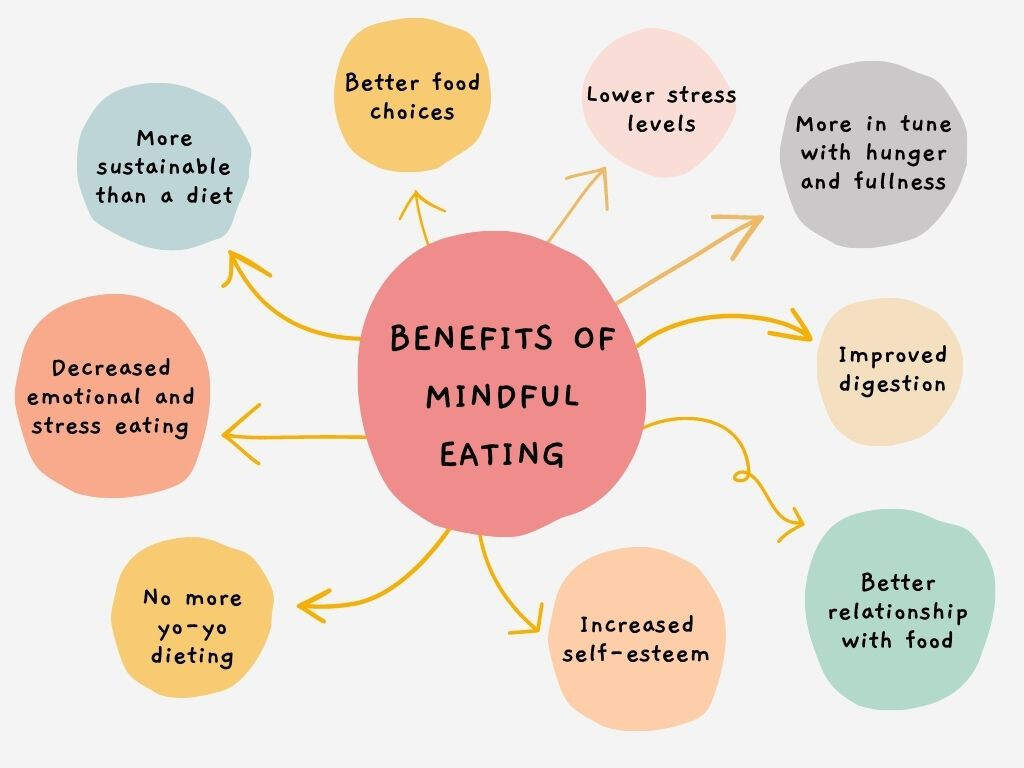In today's fast-paced world, it can be difficult to stay on top of everything. There are endless demands on our time, and it can be easy to feel overwhelmed. But there are things you can do to improve your productivity and get more done.

Here are 20 tips to help you be more productive:
- Set goals. What do you want to achieve? Once you know what you want to achieve, you can start to break it down into smaller, more manageable tasks.
- Prioritize your tasks. Not all tasks are created equal. Some tasks are more important than others. Prioritize your tasks so that you focus on the most important ones first.
- Break down large tasks. If a task seems too daunting, break it down into smaller, more manageable tasks. This will make it seem less overwhelming and more achievable.
- Set deadlines. Deadlines can help you stay on track and avoid procrastination. When you have a deadline, you're more likely to focus on the task and get it done.
- Eliminate distractions. When you're trying to be productive, it's important to eliminate distractions. This means turning off your phone, closing your email, and finding a quiet place to work.
- Take breaks. It's important to take breaks throughout the day, even if it's just for a few minutes. Getting up and moving around will help you stay refreshed and focused.
- Delegate tasks. If you have too much on your plate, don't be afraid to delegate tasks to others. This will free up your time so that you can focus on the most important things.
- Use time management tools. There are a number of time management tools available that can help you be more productive. These tools can help you track your time, set goals, and prioritize your tasks.
- Plan your day. Take a few minutes each day to plan your day. This will help you stay on track and avoid wasting time.
- Be organized. Having a system for organizing your work will help you be more productive. This could mean using a to-do list, a calendar, or a project management tool.
- Take care of yourself. When you're well-rested, well-fed, and healthy, you're more likely to be productive. Make sure you're getting enough sleep, eating healthy foods, and exercising regularly.
- Say no. It's okay to say no to requests that will take up too much of your time or that aren't a priority for you. Learning to say no will help you protect your time and focus on the things that are most important to you.
- Avoid multitasking. Multitasking is often counterproductive. When you try to do too many things at once, you're not able to focus on any of them effectively.
- Take care of your mental health. If you're feeling stressed or overwhelmed, it's important to take care of your mental health. This could mean talking to a therapist, practicing relaxation techniques, or getting enough sleep.
- Find a productivity system that works for you. There is no one-size-fits-all productivity system. Experiment with different systems until you find one that helps you be more productive.
- Be patient. It takes time to develop new habits and become more productive. Don't get discouraged if you don't see results immediately. Just keep at it, and you'll eventually see a difference.
- Celebrate your successes. When you achieve a goal, take some time to celebrate your success. This will help you stay motivated and keep working towards your goals.
- Ask for help. If you're struggling to be more productive, don't be afraid to ask for help. There are a number of resources available to help you, including books, websites, and coaches.
- Be flexible. Things don't always go according to plan. Be prepared to adjust your plans as needed.
- Don't give up. It's easy to get discouraged when you're not seeing results immediately. But don't give up. Just keep at it, and you'll eventually see a difference.
How to Find a Productivity System That Works for You
There are many different productivity systems out there, so it can be tough to know where to start. Here are a few tips for finding a productivity system that works for you:
- Consider your personality type. Some productivity systems are better suited for certain personality types than others. For example, if you're a highly organized person, you might prefer a system that uses a lot of to-do lists and calendars. If you're more of a creative type, you might prefer a system that's more flexible and allows you to work in bursts of inspiration.
- Think about your goals. What do you want to achieve with your productivity system? Do you want to get more done in less time? Do you want to improve your focus and concentration? Once you know what you want to achieve, you can start to look for a system that will help you reach your goals.
- Experiment with different systems. There's no need to commit to one productivity system right away. Try out a few different systems and see what works best for you. You might find that you need to combine elements from different systems to create a system that's perfect for you.
- Be patient. It takes time to develop new habits and become more productive. Don't get discouraged if you don't see results immediately. Just keep at it, and you'll eventually see a difference.

Here are some popular productivity systems that you can try:
- The Eisenhower Matrix: This system helps you prioritize your tasks by their importance and urgency.
- The Getting Things Done (GTD) System: This system helps you capture, organize, and process your tasks so that you can focus on the most important things.
- The Promotor Technique: This system helps you break down large tasks into smaller, more manageable chunks and work on them in focused intervals.
- The Bullet Journal Method: This system helps you track your tasks, goals, and ideas in a simple and effective way.
No matter which productivity system you choose, the most important thing is to find one that you can stick with. If you find a system that you don't enjoy using, you're less likely to stick with it in the long run. So take some time to experiment and find a system that works for you.
In today's fast-paced world, it can be easy to eat on the go, mindlessly scarfing down food without really tasting it. But this type of eating can lead to weight gain, health problems, and even emotional distress.
Mindful eating is a practice that can help you slow down, savor your food, and connect with your body. It can help you make healthier choices about what you eat, and it can improve your overall well-being.
In this blog post, we will discuss the benefits of mindful eating and provide tips for incorporating it into your daily life.
What is mindful eating?
Mindful eating is a type of meditation that focuses on the present moment and the experience of eating. When you eat mindfully, you pay attention to the sights, sounds, smells, tastes, and textures of your food. You also pay attention to your body's signals of hunger and fullness.
Mindful eating is not about judging your food or yourself. It is about simply observing and accepting your experience.

Benefits of mindful eating
There are many benefits to mindful eating. Some of these benefits include:
- Weight loss: Mindful eating can help you lose weight or maintain a healthy weight. When you eat mindfully, you are more likely to eat slowly, savor your food, and stop when you are full.
- Improved health: Mindful eating can improve your overall health. It can help to reduce your risk of heart disease, stroke, type 2 diabetes, and some types of cancer.
- Reduced stress: Mindful eating can help to reduce stress. When you eat mindfully, you are more likely to focus on the present moment and let go of worries about the past or future.
- Improved mood: Mindful eating can help to improve your mood. When you eat mindfully, you are more likely to feel satisfied and content.
- Increased self-awareness: Mindful eating can help you increase your self-awareness. When you pay attention to your thoughts and feelings around food, you can learn more about yourself and why you eat the way you do.
Tips for mindful eating
Here are some tips for incorporating mindful eating into your daily life:
- Eat slowly: One of the most important aspects of mindful eating is eating slowly. When you eat slowly, you give your body time to register that it is full.
- Savor your food: Take the time to savor each bite of your food. Pay attention to the taste, smell, texture, and appearance of your food.
- Be present: When you eat, focus on the present moment and the experience of eating. Don't worry about the past or the future.
- Be mindful of your thoughts and emotions: Pay attention to your thoughts and emotions around food. Notice if you are eating for emotional reasons, such as stress or boredom.
- Be kind to yourself: If you make a mistake, don't beat yourself up. Just start again the next meal.
Mindful eating is a skill that takes practice. The more you practice, the better you will become at it. With time and effort, you can learn to eat mindfully and enjoy the many benefits that it has to offer.
Conclusion
Mindful eating is a powerful tool that can help you improve your relationship with food and your overall well-being. If you are struggling with your weight, your health, or your mood, mindful eating may be a helpful addition to your overall wellness plan.

Carol Danvers, Monica Rambeau, and Kamala Khan are each back in the first caravan for The sensations.Captain Marvel's gem appearance in the final occasion ofMs. Marvel caught numerous suckers off guard and sparked excitement for her return to the big screen. As the MCU's most important pinch megahit, Carol Danvers has only ever come to Earth when chaos reigns or by accident. Her whereabouts have been a riddle, leaving suckers wondering what she's been over to in the hugeness of space. Fortunately, the forthcoming movie The sensations, directed by Nia DaCosta, promises to exfoliate some light on Carol's conditioning.
While Carol's position remains unknown, the new caravan hints at the trap of her powers with those of Kamala Khan and Monica Rambeau. This results in a youthful teenager being suitable to change places with the other two whenever she utilizes her powers. Though Monica and Carol have been busy fighting aliens and honing their own capacities, they don't feel thrilled about this new super circuit. still, the caravan hints at the triad forming a important platoon, and conceivably creating one of the most inventive" place- switching" fight scenes in the MCU when The sensations hits theaters on November 10th. suckers can not stay to see what surprises this cosmic adventure has in store.

Mutton is a type of meat that has been enjoyed by people all over the world for centuries. It is a rich and flavorful meat that can be prepared in a variety of ways. One such preparation is the succulent spiced mutton that melts in the mouth. This dish is a delicious and savory way to enjoy mutton that is sure to leave your taste buds satisfied.
What is Mutton?
Mutton is a type of meat that comes from mature sheep that are typically over one year old. This meat has a distinct and rich flavor that sets it apart from other meats. Mutton is often used in traditional dishes and is a staple in many cuisines around the world.

Ingredients for Succulent Spiced Mutton
To make succulent spiced mutton, you will need the following ingredients:
- 2 pounds of mutton, cut into bite-size pieces
- 1 cup of plain yogurt
- 1 tablespoon of garlic paste
- 1 tablespoon of ginger paste
- 1 teaspoon of ground cumin
- 1 teaspoon of ground coriander
- 1 teaspoon of ground turmeric
- 1 teaspoon of ground paprika
- 1 teaspoon of salt
- 1/2 teaspoon of black pepper
- 3 tablespoons of oil
- 1 large onion, chopped
- 2 tomatoes, chopped
- 2 green chilies, chopped
- 1/4 cup of fresh cilantro, chopped
- 1/4 cup of fresh mint, chopped

Preparing the Spiced Mutton
Now that you have all the ingredients, it's time to start preparing the succulent spiced mutton that melts in the mouth.
-
In a large bowl, mix the yogurt, garlic paste, ginger paste, cumin, coriander, turmeric, paprika, salt, and black pepper.
-
Add the mutton pieces to the yogurt mixture and mix well to coat the meat. Marinate the mutton for at least 2 hours in the refrigerator.
-
In a large skillet, heat the oil over medium-high heat. Add the chopped onions and cook until they are translucent.
-
Add the marinated mutton to the skillet and cook for 10-12 minutes until the meat is browned on all sides.
-
Add the chopped tomatoes and green chilies to the skillet and cook for another 5 minutes until the tomatoes are soft.
-
Cover the skillet and let the mutton cook for an additional 10-15 minutes until the meat is tender.
-
Once the meat is tender, remove the skillet from the heat and garnish with fresh cilantro and mint.
Serving Succulent Spiced Mutton
Succulent spiced mutton can be served with a variety of side dishes such as rice, naan bread, or roasted vegetables. It's a hearty and satisfying dish that is sure to please any meat lover.
Health Benefits of Mutton
Mutton is a great source of protein, iron, and other important vitamins and minerals. It is also lower in fat than other meats such as beef or pork. However, it's important to consume mutton in moderation as it is high in cholesterol.
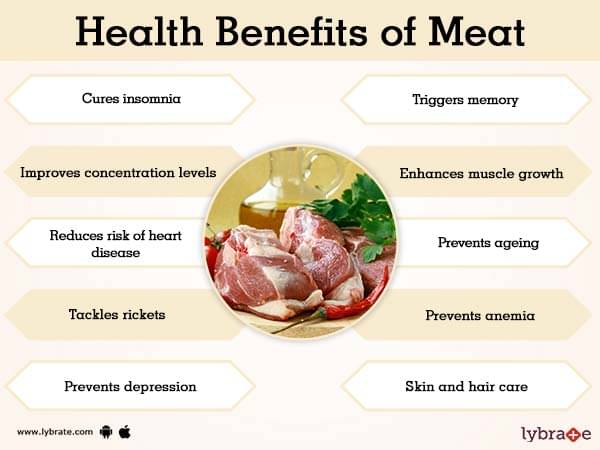
Conclusion
Succulent spiced mutton that melts in the mouth is a delicious and savory way to enjoy mutton. It's a flavorful and satisfying dish that is perfect for any occasion. With the right combination of spices and cooking techniques, you can create a succulent and tender dish that your family and friends will love. So why not give this recipe a try and indulge in the delicious flavors of succulent spiced mutton today!

In today's fast-paced world, stress and anxiety have become a common part of life, especially for busy professionals. The constant pressure to meet deadlines, achieve targets, and maintain a work-life balance can take a toll on your mental and physical health. However, there is a simple solution that can help you manage stress and anxiety effectively- Meditation.
Meditation is an ancient practice that has been around for centuries, and it is scientifically proven to have a positive impact on mental and physical health. In this blog, we will discuss five surprising health benefits of meditation for busy professionals.
1. Reduces Stress and Anxiety:
Stress and anxiety can lead to various health problems, including depression, insomnia, and high blood pressure. Meditation has been proven to reduce the levels of cortisol, the stress hormone, in the body. It helps in calming the mind and reducing anxiety, leading to a sense of relaxation and peace.
2. Improves Focus and Concentration:
In today's digital age, distractions are everywhere, making it challenging to focus on important tasks. Meditation helps in improving focus and concentration by training the mind to stay in the present moment. It helps in increasing cognitive function, memory retention, and creativity.
3. Boosts Immune System:
A strong immune system is essential for overall health and wellbeing. Meditation has been found to boost the immune system by increasing the production of antibodies and improving the body's ability to fight off infections and diseases. It also helps in reducing inflammation, which can lead to various chronic illnesses.
4. Lowers Blood Pressure:
High blood pressure is a common health problem among busy professionals due to stress and anxiety. Meditation has been found to lower blood pressure by reducing stress levels and promoting relaxation. It helps in improving cardiovascular health and reducing the risk of heart diseases.
5. Enhances Emotional Wellbeing:
Emotional wellbeing is essential for a fulfilling and happy life. Meditation helps in enhancing emotional wellbeing by reducing negative emotions, such as anxiety, depression, and anger, and promoting positive emotions, such as happiness, contentment, and gratitude. It helps in improving self-awareness, self-esteem, and overall emotional intelligence.
In conclusion, meditation is a powerful tool that can help busy professionals manage stress and anxiety effectively, improve focus and concentration, boost the immune system, lower blood pressure, and enhance emotional wellbeing. It is a simple practice that can be done anywhere, anytime, and does not require any special equipment or training. So, take a few minutes out of your busy schedule every day to meditate, and experience the amazing health benefits it offers.

In today's fast-paced world, it can be difficult to stay on top of everything. There are endless demands on our time, and it can be easy to feel overwhelmed. But there are things you can do to improve your productivity and get more done.

Here are 20 tips to help you be more productive:
- Set goals. What do you want to achieve? Once you know what you want to achieve, you can start to break it down into smaller, more manageable tasks.
- Prioritize your tasks. Not all tasks are created equal. Some tasks are more important than others. Prioritize your tasks so that you focus on the most important ones first.
- Break down large tasks. If a task seems too daunting, break it down into smaller, more manageable tasks. This will make it seem less overwhelming and more achievable.
- Set deadlines. Deadlines can help you stay on track and avoid procrastination. When you have a deadline, you're more likely to focus on the task and get it done.
- Eliminate distractions. When you're trying to be productive, it's important to eliminate distractions. This means turning off your phone, closing your email, and finding a quiet place to work.
- Take breaks. It's important to take breaks throughout the day, even if it's just for a few minutes. Getting up and moving around will help you stay refreshed and focused.
- Delegate tasks. If you have too much on your plate, don't be afraid to delegate tasks to others. This will free up your time so that you can focus on the most important things.
- Use time management tools. There are a number of time management tools available that can help you be more productive. These tools can help you track your time, set goals, and prioritize your tasks.
- Plan your day. Take a few minutes each day to plan your day. This will help you stay on track and avoid wasting time.
- Be organized. Having a system for organizing your work will help you be more productive. This could mean using a to-do list, a calendar, or a project management tool.
- Take care of yourself. When you're well-rested, well-fed, and healthy, you're more likely to be productive. Make sure you're getting enough sleep, eating healthy foods, and exercising regularly.
- Say no. It's okay to say no to requests that will take up too much of your time or that aren't a priority for you. Learning to say no will help you protect your time and focus on the things that are most important to you.
- Avoid multitasking. Multitasking is often counterproductive. When you try to do too many things at once, you're not able to focus on any of them effectively.
- Take care of your mental health. If you're feeling stressed or overwhelmed, it's important to take care of your mental health. This could mean talking to a therapist, practicing relaxation techniques, or getting enough sleep.
- Find a productivity system that works for you. There is no one-size-fits-all productivity system. Experiment with different systems until you find one that helps you be more productive.
- Be patient. It takes time to develop new habits and become more productive. Don't get discouraged if you don't see results immediately. Just keep at it, and you'll eventually see a difference.
- Celebrate your successes. When you achieve a goal, take some time to celebrate your success. This will help you stay motivated and keep working towards your goals.
- Ask for help. If you're struggling to be more productive, don't be afraid to ask for help. There are a number of resources available to help you, including books, websites, and coaches.
- Be flexible. Things don't always go according to plan. Be prepared to adjust your plans as needed.
- Don't give up. It's easy to get discouraged when you're not seeing results immediately. But don't give up. Just keep at it, and you'll eventually see a difference.
How to Find a Productivity System That Works for You
There are many different productivity systems out there, so it can be tough to know where to start. Here are a few tips for finding a productivity system that works for you:
- Consider your personality type. Some productivity systems are better suited for certain personality types than others. For example, if you're a highly organized person, you might prefer a system that uses a lot of to-do lists and calendars. If you're more of a creative type, you might prefer a system that's more flexible and allows you to work in bursts of inspiration.
- Think about your goals. What do you want to achieve with your productivity system? Do you want to get more done in less time? Do you want to improve your focus and concentration? Once you know what you want to achieve, you can start to look for a system that will help you reach your goals.
- Experiment with different systems. There's no need to commit to one productivity system right away. Try out a few different systems and see what works best for you. You might find that you need to combine elements from different systems to create a system that's perfect for you.
- Be patient. It takes time to develop new habits and become more productive. Don't get discouraged if you don't see results immediately. Just keep at it, and you'll eventually see a difference.

Here are some popular productivity systems that you can try:
- The Eisenhower Matrix: This system helps you prioritize your tasks by their importance and urgency.
- The Getting Things Done (GTD) System: This system helps you capture, organize, and process your tasks so that you can focus on the most important things.
- The Promotor Technique: This system helps you break down large tasks into smaller, more manageable chunks and work on them in focused intervals.
- The Bullet Journal Method: This system helps you track your tasks, goals, and ideas in a simple and effective way.
No matter which productivity system you choose, the most important thing is to find one that you can stick with. If you find a system that you don't enjoy using, you're less likely to stick with it in the long run. So take some time to experiment and find a system that works for you.

Teachers are the pillars of our future. They are the ones who shape our minds and hearts, and they teach us the skills we need to succeed in life. They are our mentors, our role models, and our friends.
On Teacher's Day, we celebrate the hard work and dedication of our teachers. We thank them for everything they do, and we show them how much we appreciate them.
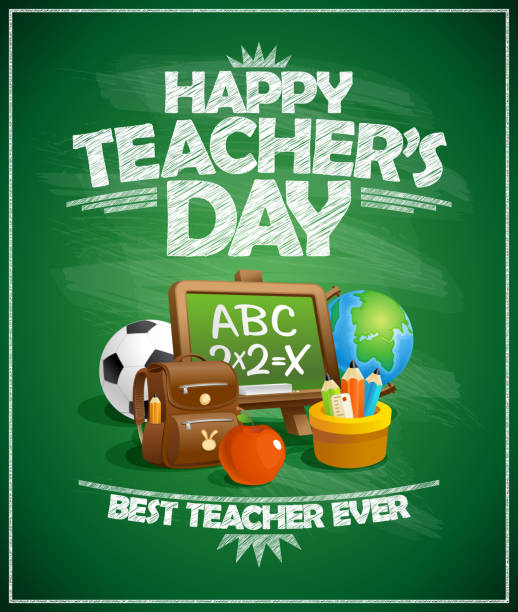
But Teacher's Day is not just about giving thanks. It is also a day to reflect on the importance of teachers in our society. Teachers are the ones who build the foundation for our future. They are the ones who create the next generation of leaders, innovators, and changemakers.
Without teachers, our world would be a very different place. We would not have the doctors, lawyers, engineers, and scientists who make our lives better. We would not have the artists, musicians, and writers who enrich our culture. We would not have the leaders who guide us through difficult times.
Teachers are the pillars of our future. They are the ones who make the world a better place.
Here are some of the ways that teachers shape our future:
They teach us the skills we need to succeed in school and in life.
They help us to develop our critical thinking skills and our problem-solving abilities.
They teach us about the world around us and how to make a difference in it.
They inspire us to dream big and reach for our goals.
They build our confidence and help us to believe in ourselves.
They create a safe and supportive learning environment where we can thrive.
Teachers are essential to our society. They deserve our respect, our gratitude, and our support.

How can we honor our teachers?
There are many ways to honor our teachers on Teacher's Day and throughout the year. Here are a few ideas:
Write a thank-you note to your teacher.
Give your teacher a small gift, such as a plant, a book, or a gift certificate to their favorite coffee shop.
Make a card for your teacher. Draw a picture, write a poem, or simply say "thank you" in your own words.
Plan a special activity for your class. This could be anything from a potluck lunch to a game day.
Volunteer your time to help out in your teacher's classroom.
Donate to a teacher's scholarship fund.
Advocate for better working conditions for teachers.
No matter how you choose to honor your teachers, make sure to let them know how much you appreciate them. They deserve it!
Thank you, teachers, for everything you do! You are the pillars of our future.

Introduction: Digital advertising has become an essential component of any successful marketing strategy. It is a form of advertising that uses digital channels such as search engines, social media, email, and websites to reach potential customers. In this beginner's guide, we will explore the digital advertising essentials that you need to know to create successful campaigns.

Table of Contents:
- Understand Your Audience
- Choose the Right Platform
- Set Clear Objectives
- Create Compelling Ad Content
- Monitor and Optimize Your Campaign
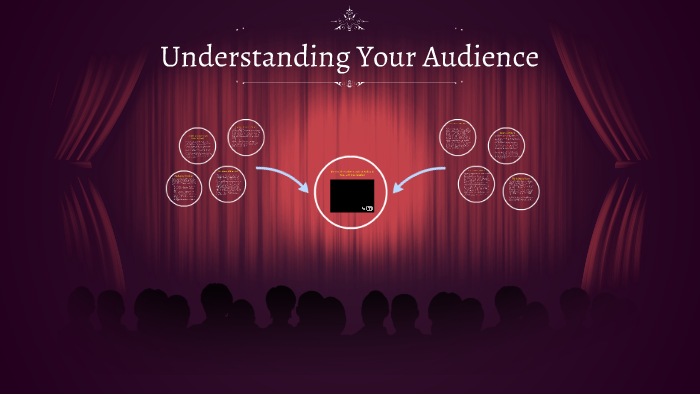
Understand Your Audience:
Before you start creating your digital advertising campaign, you need to understand your target audience. Who are they? What do they like? What problems do they have? Understanding your audience will help you create more effective ad content that resonates with them. You can use tools like Google Analytics or Facebook Audience Insights to gain insights into your audience.
Choose the Right Platform:
The next step is to choose the right platform to reach your target audience. Different platforms have different strengths and weaknesses, so you need to choose the one that aligns with your goals and audience. For example, if you're targeting a younger audience, you might consider Instagram or TikTok, while if you're targeting a professional audience, LinkedIn might be a better fit.
Set Clear Objectives:
It's essential to set clear objectives for your digital advertising campaign. What do you want to achieve? Do you want to increase brand awareness, drive website traffic, or generate leads? Defining your objectives will help you create more targeted ad content and measure the success of your campaign.
Create Compelling Ad Content:
Your ad content needs to be compelling enough to catch your audience's attention and persuade them to take action. Use eye-catching visuals, concise copy, and a clear call to action to make your ads more effective. Don't forget to test your ad content to see what works best for your audience.
Monitor and Optimize Your Campaign:
Once your campaign is live, it's essential to monitor its performance and optimize it for better results. Track key metrics such as click-through rates, conversions, and cost-per-click to measure the success of your campaign. Use A/B testing to test different ad content and adjust your targeting to reach your desired audience.

Conclusion:
Digital advertising is a powerful tool for reaching your target audience and achieving your marketing objectives. By understanding your audience, choosing the right platform, setting clear objectives, creating compelling ad content, and monitoring and optimizing your campaign, you can create successful campaigns that deliver results.
In conclusion, digital advertising is not a one-size-fits-all approach. It requires careful planning, targeting, and execution. By following the digital advertising essentials outlined in this beginner's guide, you can create successful campaigns that reach your target audience and achieve your marketing objectives.

India opened its medal account at the Commonwealth Games 2022 on Saturday with 21-year-old weightlifter Sanket Mahadev Sargar claiming a silver in the men's 55 kg category. He wanted nothing less than the gold, but two failed clean and jerk attempts spoiled his chances, and settled for a combined lift of 248 kg (113 kg+135 kg) to finish second.
Then fellow lifter Gururaja Poojary, the silver medallist in the last edition (56 kg), took the bronze in men's 61 kg. But the biggest attraction of the day was Saikhom Mirabai Chanu, who shattered Commonwealth Games records to win India's first gold medal. Later, another Tokyo Olympic Games medallist Lovlina Borgohain (boxing) started her campaign with a 5-0 win. Bindyarani Sorokhaibam, then, won India's fourth medal of the day in the women's 55 kg weightlifting. The women's hockey team also won but the women's table tennis team, the defending champions, crashed out. Catch Day 2 highlights.

After a long delay, the teaser for the largely awaited film" Pushpa 2" starring Allu Arjun and Rashmika Mandanna has eventually been released. The teaser reveals the tagline" Phool Nahi, Aag Hai"( Not a flower, but fire) and introduces Allu Arjun's character as Pushpa Raj. The makers of the film released the teaser as a birthday gift for Allu Arjun, who turned 41 on April 8, 2023.
The teaser shows Pushpa as a man of the people and features a manhunt for him, shot by Bhanwar Singh Shekhawat played by Fahad Faasil. It begins with news channels broadcasting Pushpa's supposed death and people protesting against the police. still, in the end, it's revealed that Pushpa is alive. The teaser ends with an iconic scene of Pushpa being captured by a night vision camera as a barracuda takes two way back to see him. Pushpa does his hand gesture and declares," Pushpa is then to rule."
Pushpa Trailer Out Now
Watch the special teaser of Pushpa 2 The Rule for Allu Arjun's birthday then
also, the makers of the film also released a bill featuring Rashmika Mandanna as Srivalli, Pushpa Raj's woman . The alternate investiture of the film will explore Pushpa's nonage and his connections with his father and half- siblings. The clash between Pushpa and Bhanwar Singh will continue in this grand conclusion to the two- part series. The film's music is composed by Sevi Sri Prasad and produced by Mythri Movie Makers.
About Pushpa 2 The Rule
the teaser of" Pushpa 2 The Rule" features an instigative and violent regard into the forthcoming movie. The teaser shows the manhunt for Pushpa Raj, played by Allu Arjun, who appears as a man of the public and tries to break the riddle girding his whereabouts. The teaser promises an grand conclusion to the two- part series and explores Pushpa Raj's nonage and connections with his father and half- siblings.
The teaser ends with an iconic scene where Pushpa Raj is seen alive and captures the attention of a barracuda in the night vision camera. He does his notorious' Thaggede Le' sign and declares that" Pushpa is then to rule". The teaser also includes a special bill of Rashmika Mandanna as Srivalli, who returns as Pushpa Raj's woman in the alternate investiture.
The release date for" Pushpa 2 The Rule" has not been verified, but it's anticipated to be released in 2023 or 2024. The movie is directed by Sukumar and subsidized by Mythri Movie Makers, with music composed by Sevi Sri Prasad.
Pushpa 2 release date
Directed by Sukumar, the release date of" Pushpa 2" has been laid over to March- April 2024 due to the director's perfectionist approach. suckers eagerly await the release of the film to witness the grand conclusion to Pushpa Raj's story.
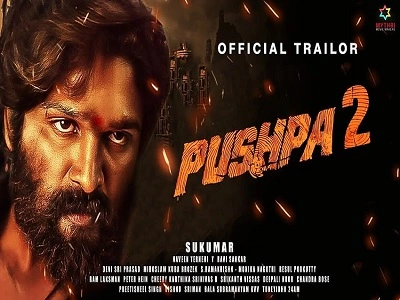
In the digital era of 2023, the e-commerce industry continues to flourish, presenting exciting opportunities for aspiring entrepreneurs. Building a successful e-commerce business requires careful planning, strategic execution, and a deep understanding of the evolving market trends. In this comprehensive step-by-step guide, we will walk you through the essential elements necessary to achieve e-commerce success in 2023. From conducting market research and identifying your niche to setting up your e-commerce store and implementing effective marketing strategies, we will provide valuable insights and practical tips to help you navigate the competitive e-commerce landscape.

Section 1: Research and Planning
To lay a strong foundation for your e-commerce venture, thorough research, and strategic planning are vital. This section will guide you through the critical steps to ensure a solid start:
- Understanding Market Trends: Stay ahead of the game by analyzing market trends, consumer behavior, and emerging technologies. Identify the niches that are in demand and explore opportunities within them.
- Identifying Your Niche: Determine your unique selling proposition and target audience. By narrowing down your niche, you can create a distinct brand identity and effectively cater to your customers' needs.
- Conducting Market Research: Dive deeper into your chosen niche, study your competitors, and understand their strategies. Identify gaps in the market and develop a comprehensive understanding of your target customers.
- Building a Solid Business Plan: Develop a detailed business plan that outlines your goals, financial projections, marketing strategies, and operational framework. A well-structured plan will serve as your roadmap to success.
Section 2: Setting Up Your E-Commerce Store
Creating an appealing and user-friendly e-commerce store is crucial for attracting and retaining customers. This section will cover the key aspects of setting up your store:
- Choosing the Right E-Commerce Platform: Evaluate different e-commerce platforms based on your business requirements, scalability, customization options, and integration capabilities. Select a platform that aligns with your long-term goals.
- Designing Your Store: Develop a visually appealing website that reflects your brand identity. Ensure a seamless user experience across devices and optimize your site for mobile users.
- Product Management: Build a structured product catalog with high-quality images, detailed descriptions, and accurate pricing information. Implement an efficient inventory management system to track stock levels and avoid stockpots.
- Securing Payment Gateways: Integrate secure payment gateways into your store to offer multiple payment options and ensure a smooth checkout process for your customers. Prioritize customer data secure
Section 3: Marketing and Promoting Your E-Commerce Store
Effective marketing is crucial for driving traffic, increasing conversions, and building brand awareness. This section will explore various marketing strategies to boost your e-commerce success:
- Search Engine Optimization (SEO): Optimize your website for search engines by conducting keyword research, optimizing product pages, and creating valuable content. Improve your organic search rankings and attract targeted traffic.
- Social Media Marketing: Leverage popular social media platforms to engage with your audience, build brand awareness, and drive traffic to your store. Create a content calendar, post consistently, and encourage user-generated content.
- Email Marketing: Develop an email marketing strategy to nurture relationships with your customers, encourage repeat purchases, and drive conversions. Use automated email campaigns, personalized recommendations, and exclusive offers.
- Influencer Partnerships: Collaborate with relevant influencers and industry experts to expand your reach and gain credibility. Choose influencers with a genuine connection to your brand and ensure their audience aligns with your target market.
- Paid Advertising: Consider utilizing paid advertising channels like Google Ads, social media ads, or influencer collaborations to drive targeted traffic to your e-commerce store and increase sales. Set a budget, define your target audience, and carefully craft compelling ad campaigns.
Section 4: Analyzing and Optimizing Performance
To ensure sustainable growth, continuous monitoring and optimization are crucial. This section will focus on analyzing key performance metrics and making data-driven improvements:
- Data Analysis: Utilize analytics tools to track and analyze key performance metrics such as website traffic, conversion rates, and customer behavior. Gain insights into your e-commerce business's strengths and areas for improvement.
- Conversion Rate Optimization (CRO): Implement CRO techniques to optimize your website's design, layout, and user experience. Test different elements like call-to-action buttons, product images, and pricing to maximize conversions.
- Customer Retention Strategies: Develop strategies to retain existing customers and encourage repeat purchases. Implement loyalty programs, personalized recommendations, and excellent customer support to build long-term relationships.
- Scaling Strategies: As your business grows, devise strategies to scale your operations. Explore opportunities to expand your product offerings, optimize your supply chain, and consider partnerships or outsourcing to meet increased demand.
Section 5: Staying Competitive and Adapting to Change
In the dynamic world of e-commerce, staying competitive and adaptable is crucial. This section will provide guidance on staying ahead of the curve:
- Keep Up with Technology: Embrace new technologies, such as artificial intelligence, catboats, and voice commerce, to enhance customer experiences and streamline operations.
- Stay Updated on Industry Trends: Continuously monitor industry trends, customer preferences, and emerging markets. Adapt your strategies accordingly to capitalize on new opportunities and stay ahead of competitors.
- Customer Feedback and Continuous Improvement: Encourage customer feedback and actively listen to their suggestions. Implement improvements based on customer insights to enhance your products, services, and overall customer experience.
- Engage in Professional Development: Continuously educate yourself about e-commerce trends, digital marketing, and business strategies. Attend conferences, join communities, and network with industry professionals to stay informed and inspired.
Conclusion
Building a successful e-commerce business requires a combination of strategic planning, diligent execution, and the ability to adapt to a rapidly evolving landscape. By following this step-by-step guide, you will have a solid foundation for achieving e-commerce success in 2023. Remember, success is a journey, and continuous learning and optimization are key. Embrace challenges, stay focused, and never hesitate to seek guidance or support along the way. With determination, perseverance, and the right strategies, you can thrive in the exciting world of e-commerce.

Banner ads have been a staple of digital advertising for many years, but with the ever-increasing amount of online competition, it can be tough to make your banner ads stand out. A banner ad's design plays a critical role in grabbing a viewer's attention and motivating them to click on the ad. In this blog post, we'll discuss how to create banner ads with effective design to boost clicks.
Table of Contents
- Use Eye-catching Colors
- Keep It Simple
- Add Clear Call-to-Actions
- Choose the Right Font
- Make Sure the Banner Ad is Mobile-Friendly
- Test and Optimize
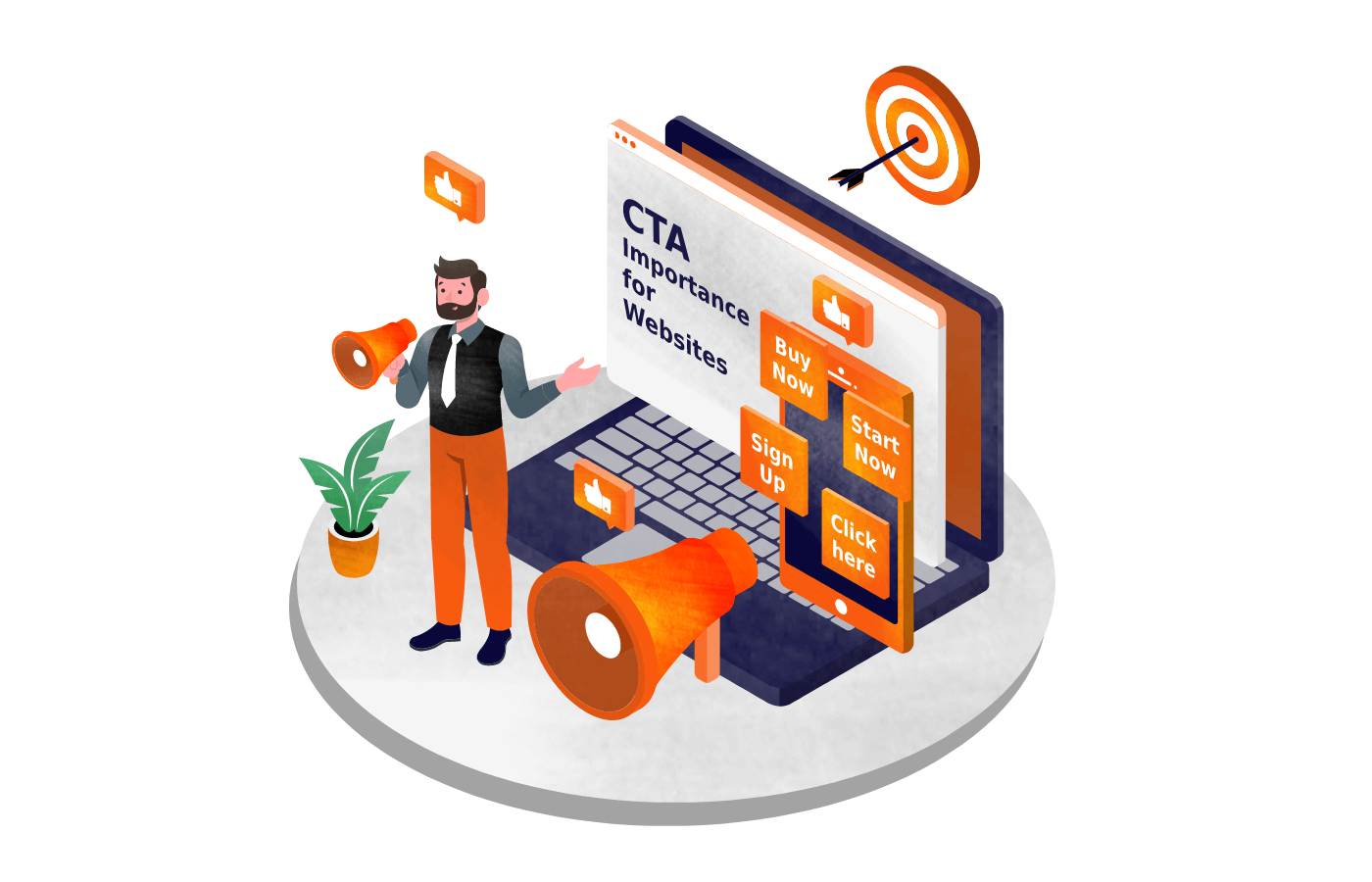
Use Eye-catching Colors
One of the most critical elements of banner ad design is choosing the right colors. Bright and contrasting colors tend to catch viewers' attention, making them more likely to notice the ad. For example, if the banner ad is on a website with a white background, using a bright red or blue background can make it stand out. However, it's essential to use colors that match your brand and the message you're trying to convey.
Keep It Simple
When it comes to banner ad design, less is more. Keep your design simple, with a clear focus on the message you want to convey. Avoid using too many images or text, which can be overwhelming for viewers. A simple and straightforward design can make it easier for viewers to understand the ad's message and make them more likely to click on it.
Add Clear Call-to-Actions
A clear and concise call-to-action (CTA) is essential in banner ad design. The CTA is the button or link that viewers click on to take the desired action, such as making a purchase or signing up for a newsletter. Make sure the CTA is prominently displayed, and the text is easy to read. Using action-oriented language like "Buy Now" or "Sign Up Today" can motivate viewers to take action.
Choose the Right Font
The font you use in your banner ad design can significantly impact its effectiveness. Choosing a font that's easy to read is crucial, as viewers may not click on an ad they can't read. Sans-serif fonts like Arial or Helvetica are popular choices for banner ad design, as they're easy to read and look good on all devices.
Make Sure the Banner Ad is Mobile-Friendly
With the increasing amount of mobile traffic, it's crucial to design banner ads that are mobile-friendly. Make sure the ad's size and layout are optimized for mobile devices, with clear and easy-to-read text and images. Mobile users tend to have a shorter attention span, so make sure the ad's message is clear and concise.
Test and Optimize
Testing and optimizing your banner ad design is crucial to improving its effectiveness. A/B testing is a popular method to test different designs to see which one performs better. Try different colors, fonts, and CTAs to see which one generates the most clicks. Keep testing and optimizing your banner ad design to ensure its maximum effectiveness.
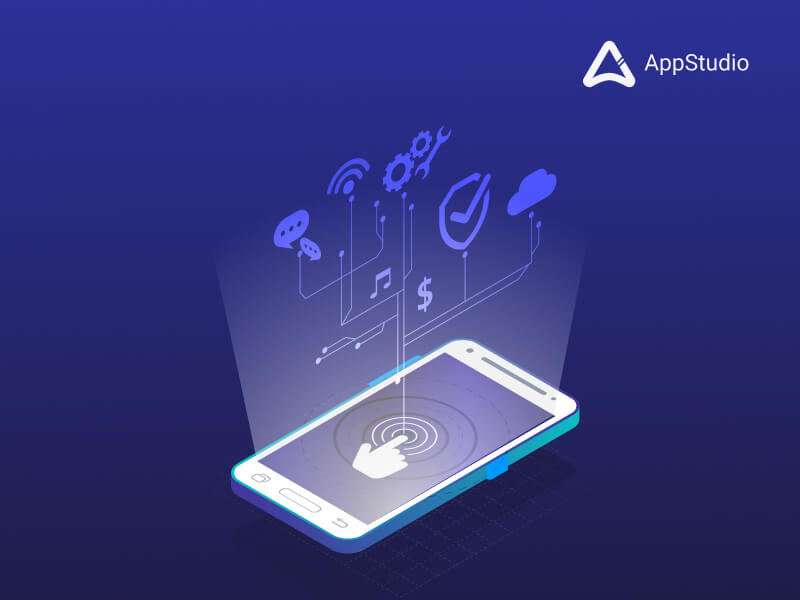
Conclusion
Effective banner ad design is essential to boost clicks and drive traffic to your website. By using eye-catching colors, keeping it simple, adding clear CTAs, choosing the right font, making it mobile-friendly, and testing and optimizing, you can create banner ads that stand out from the competition. Remember to keep your design consistent with your brand and message, and always strive to improve and optimize your design for maximum effectiveness.

Maa Brahmacharini is the second form of Goddess Durga in Hindu mythology. This form of the goddess is worshipped on the second day of Navratri, which is a nine-day festival that celebrates the victory of good over evil. The name 'Brahmacharini' is derived from two words, 'Brahma' and 'charini', which mean 'one who practices penance' and 'the one who goes on foot', respectively. Hence, Maa Brahmacharini is the goddess of penance, purity, and sacrifice.
The depiction of Maa Brahmacharini is that of a beautiful young woman dressed in white, holding a japa mala or prayer beads in her right hand and a kamandal or water utensil in her left hand. She is shown walking barefoot with a calm and composed expression on her face. Her attire represents purity, simplicity, and austerity, which are the virtues that she embodies.

The legend behind Maa Brahmacharini's form is that she was born to King Himalaya and Queen Maina. Her name was Parvati, and she was known for her beauty and grace. She fell in love with Lord Shiva and wanted to marry him. However, Lord Shiva was known for his asceticism and did not want to get married. Parvati was determined to win him over, so she left her luxurious life and went to the forest to do penance and practice austerities.
Parvati meditated for years, enduring extreme heat and cold and subsisting on a diet of fruits and roots. She became known as Brahmacharini, the one who practices celibacy and austerity. Her unwavering devotion and self-control impressed Lord Shiva, and he eventually agreed to marry her.
The significance of Maa Brahmacharini's form is that it teaches us the importance of self-discipline, sacrifice, and determination. She is an inspiration for those who want to achieve success in life through hard work and perseverance. Her form also teaches us the importance of renunciation of material desires and attaining spiritual knowledge.
During Navratri, Maa Brahmacharini is worshipped on the second day of the festival. Devotees offer flowers, fruits, and sweets to her and chant mantras in her honor. By worshipping Maa Brahmacharini, we seek her blessings for spiritual growth and the strength to overcome our material desires.
Maa Brahmacharini is believed to have meditated for years in the forests of the Himalayas, and her worship is said to grant spiritual enlightenment, self-control, and detachment from worldly desires. She is considered an embodiment of tapasya, or penance, which is the path to attaining self-realization and liberation. Her teachings emphasize the importance of discipline, restraint, and renunciation in the pursuit of spiritual goals.

The significance of Maa Brahmacharini's worship is not limited to spiritual enlightenment alone. It also has a broader social and cultural significance. Her worship teaches us to lead a simple and disciplined life, practice self-restraint, and work hard with dedication and perseverance. These values are essential for personal growth and also contribute to the betterment of society as a whole.
In conclusion, Maa Brahmacharini is an embodiment of the divine feminine energy that represents knowledge, wisdom, and determination. She is a symbol of purity, simplicity, and austerity, and her worship during Navratri is believed to bring blessings of spiritual growth, strength, and success. May we all seek her blessings and strive to embody her virtues in our daily lives.

2023 is shaping up to be a great year for movies. There are a number of highly anticipated films set to be released, including sequels to popular franchises, original stories from acclaimed filmmakers, and everything in between. Here are the top 10 movies of 2023 that you won't want to miss:
1. Guardians of the Galaxy Vol. 3
The third installment in the Guardians of the Galaxy franchise is finally here! James Gunn is back in the director's chair, and the original cast is returning, including Chris Pratt, Zoe Adana, Dave Bautista, Vin Diesel, Bradley Cooper, and Karen Gillian. The film will see the Guardians team up with Adam Warlock (Will Oulter) to face off against a new threat.
2. Ant-Man and the Wasp: Quadrumana
Paul Rudd and Evangeline Lilly return as Ant-Man and the Wasp in this third installment in the series. The film will see the duo team up with Kang the Conqueror (Jonathan Majors), a time-traveling villain who is threatening the entire universe.
3. The Flash
Ezra Miller returns as Barry Allen, aka The Flash, in this DC Comics film. The film will see Barry travel back in time to prevent his mother's murder, but his actions could have unintended consequences. Michael Keaton will also reprise his role as Bruce Wayne, aka Batman.
4. Aquamin and the Lost Kingdom
Jason Myoma returns as Aquaman in this sequel to the 2018 film. The film will see Aquamin team up with Mera (Amber Heard) to protect Atlantis from a new threat. Patrick Wilson will also reprise his role as Oram, Aquaman's half-brother.
5. The Little Mermaid
Halle Bailey stars as Ariel in this live-action adaptation of the Disney animated classic. The film also stars Javier Bardem as King Triton, Awkwafina as Scuttle, and Melissa McCarthy as Ursula.
6. Oppenheimer
Cillin Murphy stars as J. Robert Oppenheimer, the scientist who led the Manhattan Project to develop the atomic bomb. The film is directed by Christopher Nolan, and it also stars Emily Blunt, Robert Downey Jr., Matt Damon, Florence Pugh, and Kenneth Briana.
7. Babylon
Brad Pitt and Margot Robbie star in this period drama set in Hollywood during the Golden Age of cinema. The film is directed by Damien Chazelle, and it also stars Tobey Maguire, Olivia Wilde, and Spike Jonze.
8. Elvis
Baz Luhrmann directs this biopic about Elvis Presley. Austin Butler stars as Elvis, and Tom Hanks stars as his manager, Colonel Tom Parker.
9. Nope
Jordan Peele directs this sci-fi thriller about two ranch hands who witness a mysterious and abnormal event. The film stars Daniel Kaluuya, Keke Palmer, and Steven Yeun.
10. Top Gun: Maverick
Tom Cruise returns as Pete "Maverick" Mitchell in this sequel to the 1986 film. The film also stars Miles Teller, Jennifer Connelly, Jon Hamm, and Val Kilmer.
These are just a few of the many great movies that are set to be released in 2023. With so much to choose from, there's sure to be something for everyone. So get ready for a year of great cinema!



